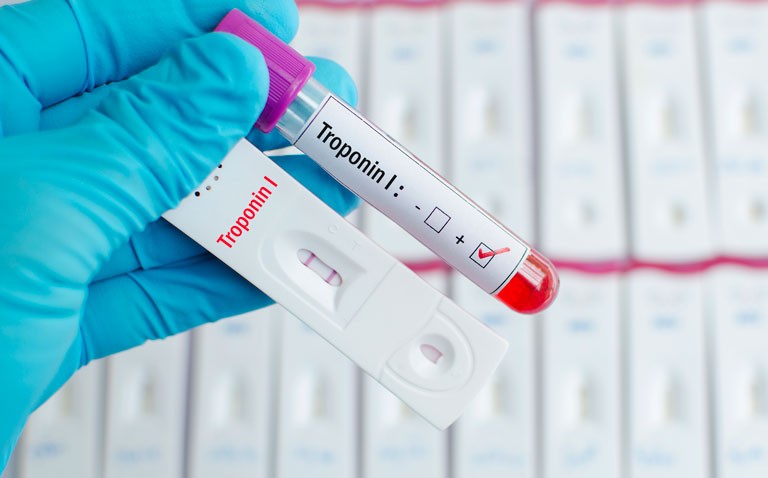Although mainly a respiratory infection, COVID-19 can also lead to myocardial injury but the predictive value of routine cardiac biomarkers such as troponin I has not been examined.
Myocardial injury is associated with the release of the biomarker troponin I, irrespective of the cause of the injury. Indeed, myocardial injury in those hospitalised with COVID-19 is associated with a poor prognosis. Given that COVID-19 can result in cardiac damage, a team from the Department of Internal Medicine, Sohag University, Egypt, wondered if troponin I levels could be used prognostically to assess the need for intensive care (ICU) and mortality among patients hospitalised with COVID-19. The researchers undertook a prospective study of patients admitted to hospital and with a PCR confirmed diagnosis of COVID-19. In addition to the collection of demographic, history and laboratory findings, all patients underwent routine investigations with cTnI (troponin I), chest computed tomography (CT), D-dimer and ECG recording. The primary outcome of the study was the relationship between cTnI level and patient outcomes, i.e., whether an individual had improved after hospital treatment or required mechanical ventilation or subsequently died.
Findings
The study included 92 patients with a mean age of 54.9 years (49% male). The most common symptoms were fatigue (92%), tachycardia (84%) and cough (83%). More than half of all patients (55.4%) were admitted to ICU and 18% of the population died. Among those admitted to ICU, the cTnI level was elevated in 58.8% of patients and levels were significantly higher compared to patients not admitted (5.39 vs 0.017, admitted vs not admitted, p < 0.001). Similarly, cTnI levels were significantly elevated in those who subsequently died compared to patients who improved (8.46 vs 0.27, died vs improved, p < 0.001). In addition, D-dimer values were also significantly higher in those admitted to ICU (2117.07 vs 126.09, admitted vs not admitted) and those who subsequently died compared to participants who improved (2783.3 vs 388.67, died vs improved).
In discussing their results, the authors suggested that elevated cTnI levels appeared to be of prognostic value and should be perceived as a warning sign for both the need for ICU admission and potential death. Although other work has indicated that cTnI levels are mildly elevated in all patients with COVID-19, the authors pointed to a marked elevation in levels was predictive of more severe disease although more work was required for risk stratification.
Citation
Ghaleb AA et al. Prognostic value of troponin I in COVID-19 patients. Open Cardiovasc Med J 2021










